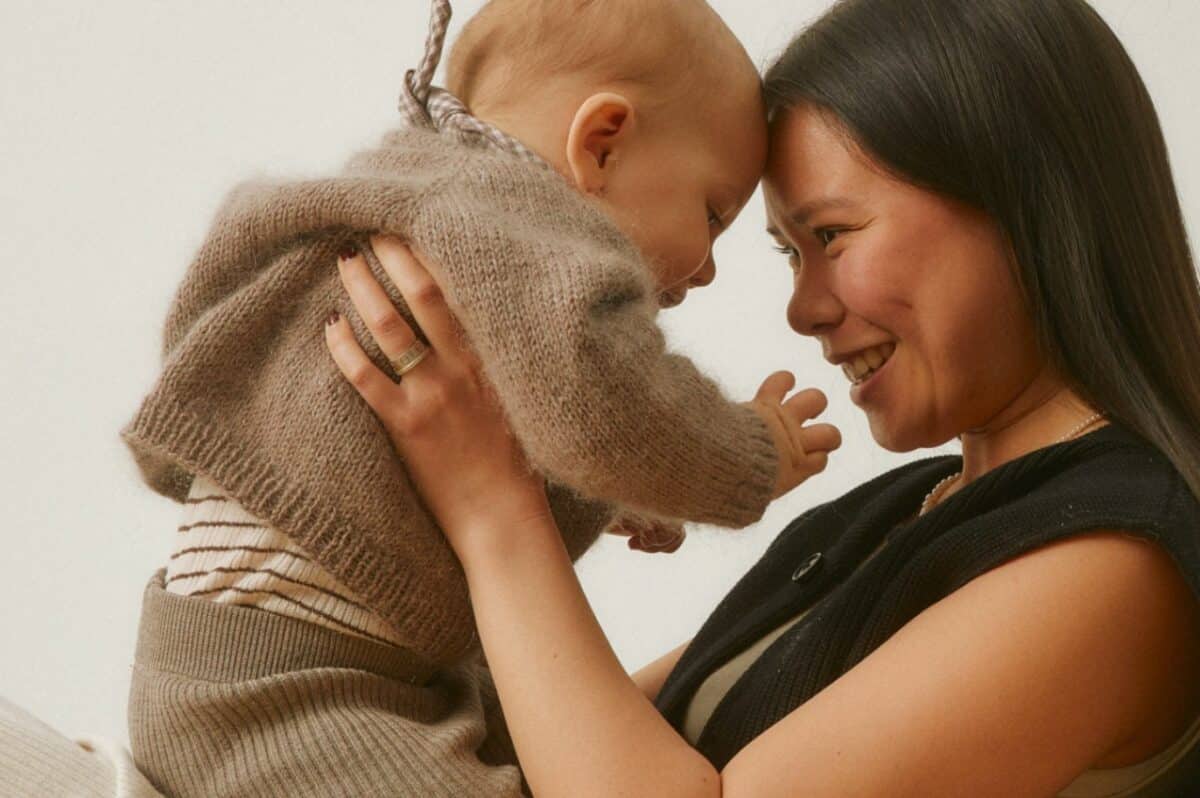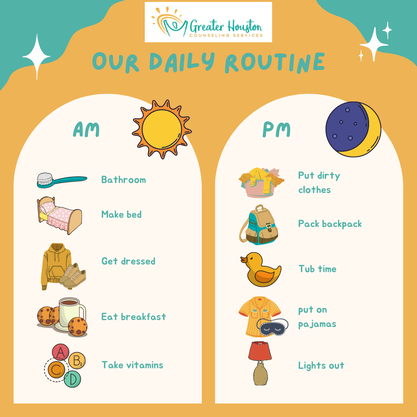In the journey of parenthood, few things are as crucial as fostering a sense of security in your baby. This comprehensive guide, “Supporting Your Baby’s Sense of Security: A How-To Guide”, is designed to empower parents with the knowledge and tools needed to create a safe and nurturing environment for their little ones. From understanding the significance of attachment to building strong parent-child bonds, this guide delves into practical strategies that promote emotional well-being and resilience in infants. Whether you’re a new parent seeking guidance or an experienced caregiver looking for fresh insights, this resource will equip you with valuable tips to encourage exploration, provide comfort, and ultimately lay the foundation for your child’s lifelong emotional development.
Let’s investigate this topic extensively with sumvlog.com
1. Introduction
In the wondrous journey of parenthood, few things are as crucial as nurturing a sense of security in your baby. This foundation of emotional well-being lays the groundwork for your child’s lifelong development, impacting their confidence, resilience, and relationships. “Supporting Your Baby’s Sense of Security: A How-To Guide” is your comprehensive companion on this path, offering a roadmap to create a safe and nurturing haven for your little one.
This guide delves into the intricate world of attachment – the deep bond between parent and child – and its pivotal role in shaping your baby’s emotional landscape. We’ll explore the significance of routines, consistency, and responsiveness in establishing a predictable environment where your baby feels safe to explore and learn.
From practical tips on creating a calming atmosphere to fostering strong parent-child bonds, this guide equips you with the tools to navigate the challenges and joys of early parenthood. Whether you’re a first-time parent or seeking to enhance your existing parenting skills, this resource is designed to empower you with knowledge and strategies that will nurture your child’s emotional growth and set them on a path towards a confident and fulfilling life.
2. Importance of building baby’s sense of security

A baby’s earliest experiences lay the foundation for their emotional and social development. A strong sense of security during infancy provides a safe haven from which they can explore the world, fostering curiosity, confidence, and resilience. When babies feel secure in their environment and relationships, they are more likely to develop healthy attachment patterns with their caregivers. This secure attachment becomes a blueprint for future relationships, influencing their ability to trust, connect, and form meaningful bonds throughout their lives.
Additionally, a secure base allows babies to develop a positive sense of self. They learn to trust their instincts, express their emotions, and navigate challenges with confidence. A lack of security, on the other hand, can lead to anxiety, difficulty regulating emotions, and challenges in forming trusting relationships later in life. By prioritizing your baby’s sense of security, you are investing in their long-term emotional well-being and equipping them with essential life skills.
3. Creating a safe and nurturing environment
A safe and nurturing environment serves as the cornerstone of your baby’s sense of security. It’s a space where they feel protected, loved, and free to explore their surroundings. Begin by ensuring physical safety. Babyproof your home by securing furniture, covering outlets, and removing any potential hazards. Create a calming atmosphere with soft lighting, gentle sounds, and comfortable textures. A consistent sleep routine with a cozy sleep environment is also essential for your baby’s well-being.
Beyond physical safety, prioritize emotional security. Respond promptly and consistently to your baby’s needs for nourishment, comfort, and interaction. Your warm and loving presence creates a sense of trust and reassurance. Engage in gentle touch, soothing vocalizations, and playful interactions to foster a strong emotional connection. Remember, a safe and nurturing environment is not just about physical surroundings; it’s about creating a space where your baby feels loved, understood, and emotionally secure.

4. Establishing routines and consistency
Babies thrive on predictability. Establishing routines and maintaining consistency in their daily lives provides a sense of order and stability, helping them feel safe and secure. Consistent feeding schedules, nap times, and bedtime routines create a rhythm that regulates their internal clock and promotes healthy sleep patterns. Knowing what to expect reduces anxiety and allows babies to anticipate events, fostering a sense of control over their environment.
In addition to daily routines, consistent responses from caregivers are equally important. When babies learn that their cries will be met with comfort, their needs for nourishment will be met promptly, and their attempts at communication will be acknowledged, they develop a sense of trust and security in their relationships. This trust forms the foundation for healthy attachment and emotional development.
Remember, consistency doesn’t mean rigidity. Be flexible and responsive to your baby’s cues, adjusting routines as needed while maintaining a predictable framework. By establishing routines and providing consistent care, you create a nurturing environment where your baby can thrive and develop a strong sense of security.

5. Building strong parent-child bonds
The bond between parent and child is the bedrock of a baby’s sense of security. Nurturing this connection requires time, dedication, and genuine engagement. Dedicate uninterrupted moments to interact with your baby, whether it’s through playful cuddles, gentle rocking, or simply gazing into their eyes. Respond to their coos and babbles, mirroring their sounds and facial expressions. These early interactions foster a sense of connection and lay the groundwork for communication and language development.
Skin-to-skin contact, babywearing, and breastfeeding further strengthen the parent-child bond, releasing oxytocin, the “love hormone,” in both parent and baby. Make time for activities that promote bonding, such as reading together, singing lullabies, or taking walks in nature. Remember, building strong parent-child bonds is an ongoing process that deepens over time. Every loving touch, every shared smile, and every moment of connection strengthens the foundation of your baby’s sense of security and lays the groundwork for a lifelong loving relationship.
6. Encouraging exploration and independence
As your baby grows, their innate curiosity and desire for independence will begin to emerge. Encouraging exploration and fostering a sense of autonomy are crucial steps in supporting their development. Create a safe and stimulating environment where your baby can freely explore, crawl, and discover. Provide age-appropriate toys and activities that encourage movement, sensory exploration, and problem-solving skills.
Allow your baby to make choices within safe boundaries, such as selecting a toy to play with or choosing between two outfits. These small decisions empower them and foster a sense of control over their environment. Avoid being overly protective or rushing to solve problems for your baby. Instead, offer guidance and support while allowing them to navigate challenges on their own. Celebrate their achievements and encourage them to persevere through setbacks.
Remember, promoting independence doesn’t mean leaving your baby to fend for themselves. Your presence, reassurance, and encouragement are essential as they explore their world and develop the confidence to tackle new challenges. By balancing support with autonomy, you’ll empower your baby to become a self-assured and resilient individual.

7. Providing comfort and reassurance
In the rollercoaster of emotions that babies experience, comfort and reassurance are the anchors that keep them grounded. Responding promptly to your baby’s cries, offering soothing cuddles, and gentle rocking can work wonders in calming their anxieties and fears. Be attuned to their non-verbal cues, such as facial expressions and body language, to understand their needs and provide appropriate comfort.
Introduce comforting rituals, such as singing lullabies, reading bedtime stories, or offering a favorite blanket or stuffed animal. These familiar routines provide a sense of predictability and security, especially during stressful or unfamiliar situations. When your baby is upset, avoid dismissing their emotions or telling them to stop crying. Instead, acknowledge their feelings, offer verbal reassurance, and provide physical comfort through hugs, kisses, or gentle touch.
Remember, your presence is the most powerful source of comfort for your baby. Even if you can’t immediately solve the problem, simply being there to hold them, talk to them, and offer your love can make a world of difference. Encourage self-soothing techniques, such as sucking on a pacifier or thumb, as they grow older. These strategies empower babies to manage their emotions independently while knowing that they can always rely on your support when needed.
8. Conclusion
Fostering a sense of security in your baby is a lifelong gift that will shape their emotional well-being and resilience. By creating a safe and nurturing environment, establishing routines, building strong parent-child bonds, encouraging exploration, and providing unwavering comfort, you are laying the foundation for your child’s future happiness and success.
Remember, building a sense of security is an ongoing process that requires patience, understanding, and unwavering love. Embrace the challenges and cherish the joys of parenthood as you guide your little one on their journey of growth and discovery.
As you implement the strategies outlined in this guide, you’ll witness your baby blossom into a confident, curious, and emotionally secure individual. Your investment in their emotional well-being will reap rewards for years to come, creating a legacy of love, trust, and resilience that will last a lifetime.
sumvlog.com
